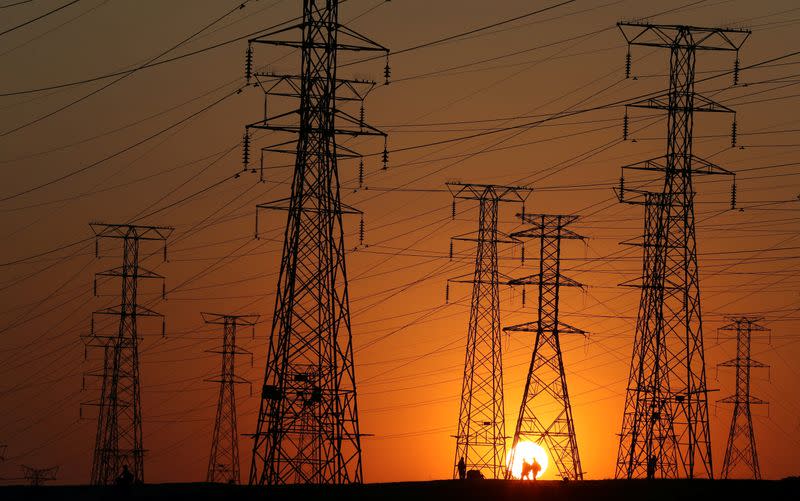Power cuts return, adding to frustrations in COVID-weary South Africa

By Mfuneko Toyana
JOHANNESBURG (Reuters) - Keitumetse Modise was already struggling to juggle her appointments as a freelance beautician while home-schooling her daughter during South Africa's nearly four-month-old COVID-19 lockdown. The last thing she needed was the lights going out.
But after being forced to turn kitchen tables into classrooms and bedrooms into home offices, pandemic-weary South Africans now face an added challenge in the form of a familiar headache: rolling blackouts.
Months of pandemic-induced shutdown and reduced demand had actually resulted in uncharacteristically reliable electricity for those stuck at home, as South Africa's creaking grid was given some respite.
Since last week however, with restrictions easing and businesses cautiously reopening, planned blackouts - known locally as loadshedding - are back and with them the frustration of unstable internet, lost revenue and disrupted schedules.
Modise, a 33-year-old single mother, has had to push back work appointments to ensure she can help with online schoolwork when there is power. "You do what you have to," she said.
South Africa, the continent's most advanced economy, suffered its worst ever power cuts late last year as debt-crippled state utility Eskom imposed cuts to ward off a grid overload.
After nearly four months without nationwide outages, Eskom conducted a fresh round in July, with a spokesman saying "it would be naive to think we are done."
Many South Africans now expect them to again become a part of daily life, complicating efforts to work and learn online. Focused power cuts targeting mainly poor townships with unpaid electricity bills have meanwhile continued.
The timing could hardly be worse. Now a global COVID-19 hot spot, South Africa is hurtling towards the peak of its outbreak, topping 380,000 total infections this week.
Schools reopened for some year groups but millions of children are still trying to follow lessons from home.
Primary school teacher Ronald Maswanganyi has faced two weeks of power cuts, sometimes in the middle of his teaching.
"There's nothing I can do except call my boss, the principal, and tell him I can't continue with the lesson," he said.
The return of loadshedding also threatens to deepen economic misery in a country already in a recession, with the unemployment rate topping 30% before the pandemic hit. Things have only worsened with widespread layoffs.
Wellness firm Body20 lost 30% of its revenue due to the lockdown, so began offering personal trainer sessions online.
"Our frustration is that no matter how much you try to adapt and innovate to cope with something as catastrophic as COVID-19, suddenly you don't have electricity," said Body20's CEO Philip Hughes.
(Additional reporting by Siyabonga Sishi; Editing by Joe Bavier and Alexandra Hudson)


